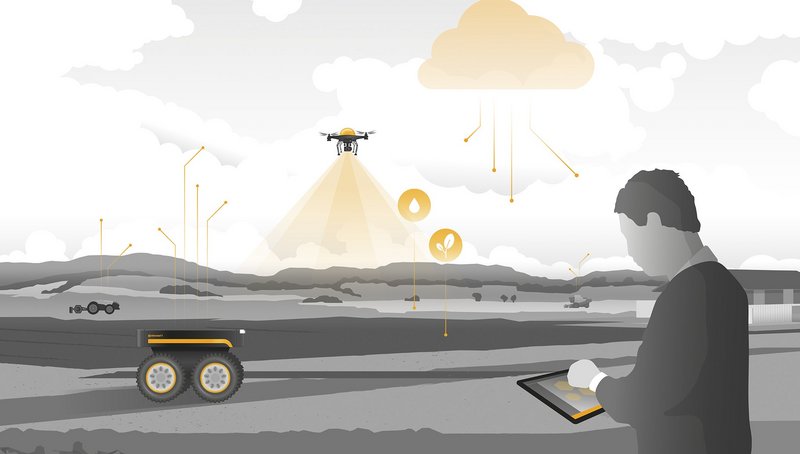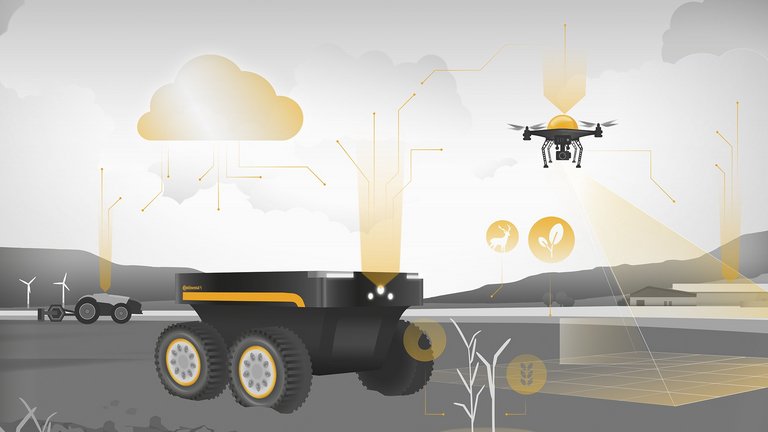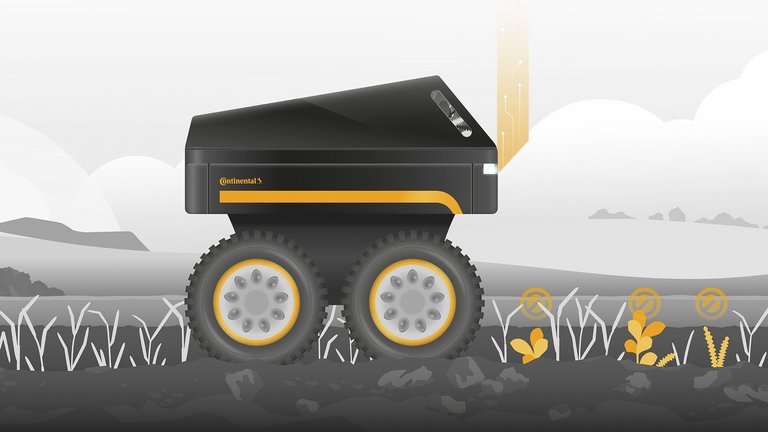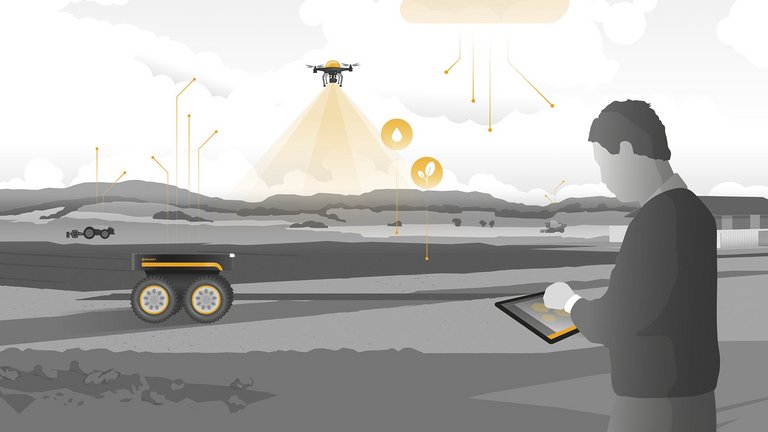Continental Focuses More Closely on Agricultural Business, Concentrating on Smart Farming
- Executive Board member Hans-Jürgen Duensing: “Smart farming is the feedstock for the field of the future.”
- Precision farming: Drones and robotic systems for efficient field operations
- Agricultural sector continues move toward connectivity: Smart solutions for sustainable production measures
Hanover, August 19, 2019. Technology company Continental is furthering its agricultural operations, providing new solutions and impetus, especially with reference to the issues of relevance to the sector and its future, namely digitalization, connectivity and sustainability. Smart farming, i.e. the digitalization of agriculture, is becoming increasingly important in feeding the world. “Smart farming is the feedstock for the field of the future. Our customers can already harvest the fruits of our developments and cultivate their fields more efficiently and conveniently and with greater environmental awareness. In our developments, we have prepared the ground for this in the past few years,” emphasized Hans-Jürgen Duensing, the Continental Executive Board member who is also responsible for Continental’s off-highway activities. According to the Statista online portal, smart farming represents a global annual market volume in excess of 200 billion euros.
Robots and drones for efficient farming
The focus is on systems for improving operational, machinery and soil efficiency and the transparency of work processes and procedures. “We examine the entire system holistically. At the same time, environment-friendly farming is at the core for us. We develop ideas for smart products and systems and implement them consistently,” said Duensing. Precision agriculture plays a decisive role in this regard. The industry supplier is providing important fresh impetus with its smart technologies of the future. For example, the company configures components for drones and develops robots that could also be used in the field – e.g. operating in formation. These are equipped with different sensor and camera applications. The LIDAR, for instance, measures distances to a target using the transmission time of one or more laser pulses. 3D Flash LIDAR environment sensors from Continental could also be used in drones to gather comprehensive data on the condition of fields and crops.
A robotic implement carrier that allows modular attachment for agricultural purposes works autonomously and can be used in conjunction with the appropriate mounted implements for numerous tasks, for example monitoring crop growth, precision weeding or targeted sowing of seed and fertilizer placement. Camera-based multispectral or thermographic sensors are required, particularly for monitoring crop growth. Continental has the relevant camera, radar and LIDAR know-how needed for the safe operation of autonomous vehicles in the field.
Agricultural sector as one aspect of developments within society as a whole
Price pressure, increasingly stringent demands on environmental protection and food quality are societal challenges faced by the global agricultural industry. The world population currently stands at around 7.6 billion people. The UN forecasts that the global population will grow to 9.8 billion by 2050 and to as many as 11.2 billion by 2100. These people have to be fed. This can only be delivered by a modern and efficient agricultural system. Continental is facing up to the challenges as a development partner to its customers. The technology company’s expertise spans a wide range of sectors, enabling it to flexibly and quickly ensure that new solutions tailored to agriculture’s needs flourish and grow.
Globally increasing infrastructure investment and changing agricultural production and business methods will have a global impact. In this connection, the importance of efficient agricultural machinery and production systems will continue to grow in the future since the agricultural economy will be even more closely entwined with developments and trends, such as a growing global trend toward urbanization. The space then available will grow and the increasing relocation of production operations for agricultural products to the urban environment – vertical farming – will continue.
The agricultural sector will drive the expansion of the circular economy because of the resulting high demand for sustainable agriculture solutions. This circular economy ensures that sector-relevant resources are reprocessed and made available for productive use. The demand for natural resources can consequently be reduced. That will beneficially impact central aspects such as productivity, irrigation options and the cost-effectiveness of farms.
Automation, telematics solutions, secure data transfer and efficiently controlled material streams will enable operators of agricultural machines and farmers to customize the configuration of their machinery and adapt it to their particular situations and needs. Continental offers customer-specific applications for these purposes that promote sustainable management and reduce resource wastage.
Continental will be showcasing its latest developments for the agriculture sector at the world-leading Agritechnica trade show from November 10 to 16 in Hanover.
Here you can download the video
Here you‘ll find all information on Agritechnica.

Wolfgang Reinert
Head of Media & Public Relations
ContiTech



